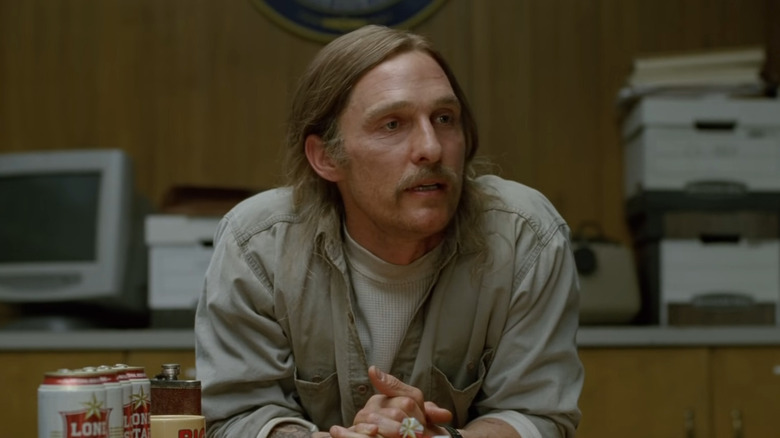Why Is It Called True Detective (& Whatever Happened To The Magazine)?
The title of HBO's "True Detective," now returning for a fourth season as "True Detective: Night Country," is not just an appropriate name for the gritty mystery series, it was also a real-life pulp magazine.
True Detective Magazine, originally called True Detective Mysteries, started in 1924 and originally published fictional stories before switching to factual content. The periodical turned out to be a massive success, creating many imitators, and it sold 2 million copies per month at its peak. At first, True Detective preferred to stick to the facts and avoid gruesome details, but it added more garish material in the '70s.
But by the '90s, these true crime magazines just couldn't compete with tabloid TV and best-selling pulp books. True Detective officially shut down in 1995 after more than 50 years in circulation.
The show's success sparked new interest in these old-school magazines. But the name "True Detective" also works perfectly in tandem with the show's deeper themes.
The title True Detective refers to the series' main characters
During a TCA Q&A panel in 2014, quoted by Assignment X, show creator Nic Pizzolatto said, "[T]he title 'TRUE DETECTIVE' [sic] is meant to be, of course, purposefully someone [sic] generic before you even get to the deeper indications." The name is ironic, given the association with the magazine, but it also makes sense.
"True Detective" the show is much more dramatic and features fictional crimes, not real ones. It also deconstructs complicated lawmen characters like Rust Cohle (Matthew McConaughey) and Wayne Hays (Mahershala Ali) instead of sharing the older magazine's black-and-white morality. True Detective Magazine split cops and criminals into pure good and evil, but the drama suggests this isn't ever really possible.
However, Pizzolatto notes in the same interview, "The word 'true' can also mean honorable and authentic and things like that." The show's main protagonists often commit questionable, even morally awful, actions. Still, they can also dedicate themselves to doing the right thing and solving the central mysteries by any means necessary. This is what makes them, in the end, "true" detectives.

